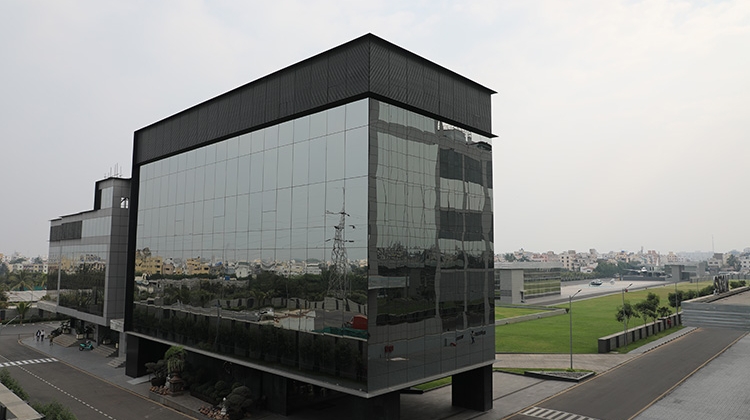Facility of the Year Award (FOYA) Winners in the Supply Chain category exemplify novel application of principles, systems, and management tools aimed at improving operational speed, robustness, and response. These could be applied to areas in which delivery to market impacts patients, technology amplifies supply chain robustness or security, or candidates exemplify modern approaches to disruption.
FOYA Winners in the Social Impact category recognizes companies that accelerated a shift to sustainable facility design, intended to ensure the effective use of energy, minimize waste, reduce carbon footprint, incorporate green manufacturing techniques, reduce environmental impact, and increase patient access and prevent drug shortages through in-country-for country manufacturing; outbreak, epidemic, or emerging health crisis response via rapid deployment and fast- track drug production; and designs which overcome specific geographical challenges.
SERUM is ranked as India’s number one biotechnology company and the world’s largest vaccine manufacturer by the number of doses produced and sold globally (more than 2.5 billion doses annually), which includes polio, diphtheria, tetanus, pertussis, Hib, BCG, r-hepatitis B, measles, mumps, rubella, and pneumococcal vaccines. SERUM exports vaccines to 170 countries. Today, it is estimated that about 65% of the children in the world across 170 countries receive at least one vaccine manufactured by SERUM.
Project: NISHWAS
Six Months to Commercially Scale COVID-19 Vaccines
SERUM’s NISHWAS project is recognized as a FOYA Category Winner in both Supply Chain and Social Impact. They were awarded an award in the Supply Chain category as the NISHWAS project exemplifies how to deliver in record time a large pharmaceutical manufacturing capability and capacity during a time of crisis to serve unmet needs. This project and its ability to deliver much needed COVID-19 vaccines to a populous country like India was invaluable in ensuring India’s resilient fight against COVID-19 while keeping its cities open for business. This project and its outcome had a profound impact on India as well as many other developing countries where the vaccine manufactured by SERUM was administered. This is why they are also being recognized in the category of Social Impact, as it exemplifies how agility in delivery in such an accelerated timeframe can have a positive impact on the well-being of millions of people.
Why They Won:
SERUM made the exceptional accomplishment of producing COVID-19 vaccines at a commercial scale in six months from the start of design modification on 1 October 2020 to rolling out the first batch of the vaccine to save human life on 31 March 2021. They supplied 1,472,010,980 and 276,835,540 doses of Oxford-AstraZeneca’s Covishield vaccine in 2021 and 2022 respectively. During the same period, SERUM manufactured and supplied 9,008,000 and 129,355,650 doses of Novavax’s Covovax/Nuvaxovid COVID-19 vaccine and supplied COVID-19 vaccines to over 90 countries across the world.
SERUM is uniquely placed in the biotechnology industry. They already had in-house resources for engineering design, project execution, procurement management, construction management, commissioning, qualification, and validation activities. They were able to mobilize those resources to modify already constructed buildings without needing support from external engineering and construction agencies. Instead, they were able to use internal resources and team members were motivated, encouraged, and provided autonomy. The personal commitment of each team member to make rapid design changes to accommodate manufacturing of COVID-19 vaccines remained undeterred despite lock-downs, fear of infection, and limited commuting services. SERUM ensured a safe and healthy working environment for every person across all functional departments who was directly or indirectly engaged in the project.
As the spread of COVID-19 generated a global health crisis, SERUM decided to take the lead for the manufacturing of COVID-19 vaccines in collaboration with Oxford-AstraZeneca and Novavax whose vaccines were in the clinical stage of development.
SERUM’s aseptic and sterile drug substance and drug product facility project was being set up for other vaccines products. But SERUM decided to modify the buildings, which were already 70% complete, to allow COVID-19 vaccine manufacturing at the Manjari site, near Hadapsar. The project scope for the design and construction of the COVID-19 vaccine manufacturing facility included:
- Integrated project management including monitoring and control
- Modification of engineering and design of the aseptic and sterile drug substance and drug product manufacturing facility which was already 70% complete for other vaccine products
- Repurposing the manufacturing facility by way of construction modification
- Modifying the equipment already purchased and delivered besides those which were ordered and were in various stages of manufacturing
- Scaling up Oxford-AstraZeneca and Novavax vaccines manufacturing from 50L scale to 4,000L commercial production scale
- Increasing the cold storage temperature requirement of Oxford-AstraZeneca vaccine from -60 ⁰C to 2-8 ⁰C, yet maintaining same quality and efficacy
- Arranging regulatory audits for production and distribution of vaccines. The approvals included USFDA, MHRA, UK; EMA, EU; Health Canada; TGA, Australia; MedSafe, New Zealand; DCG (India); and WHO.
To meet extremely aggressive milestones imposed by the ultra-fast-track schedule of the project, the project team implemented the following two strategies, namely, concurrent engineering, procurement, and construction, and real-time risk mitigation. By implementing these strategies, the project team’s design and engineering activities were effectively implemented, while maintaining a high degree of accuracy, progress traceability, and final product quality.
WANT TO LEARN MORE?
Attend the 2023 Facility of the Year Awards Celebratory Reception and Banquet on 15 October at Mandalay Bay Resort in Las Vegas, Nevada, USA held in conjunction with the 2023 ISPE Annual Meeting & Expo.
Register Now!
NOMINATE YOUR FACILITY FOR THE 2024 FOYA PROGRAM!
Apply for a chance to join this prestigious list of innovative game-changers and let ISPE honor your organization as a 2024 FOYA program winner. Applications must be submitted by 4 December 2023.
Submit Your Facility






